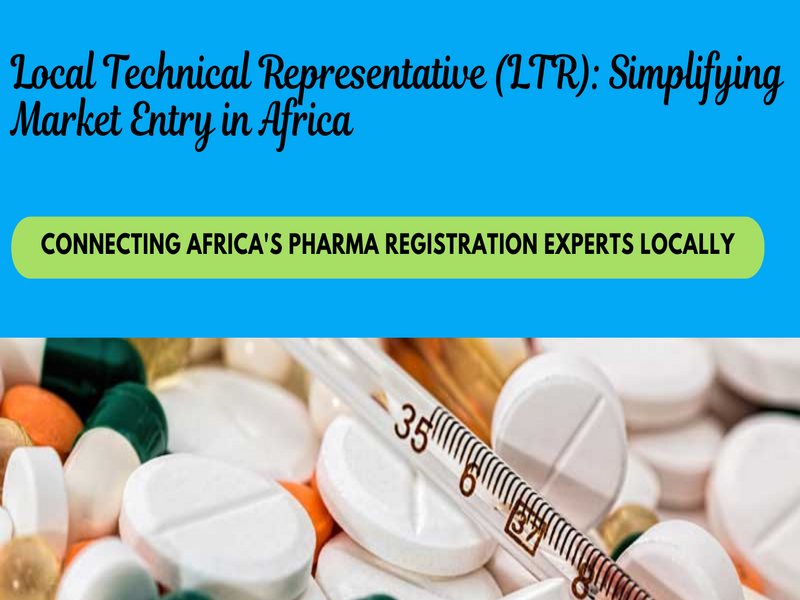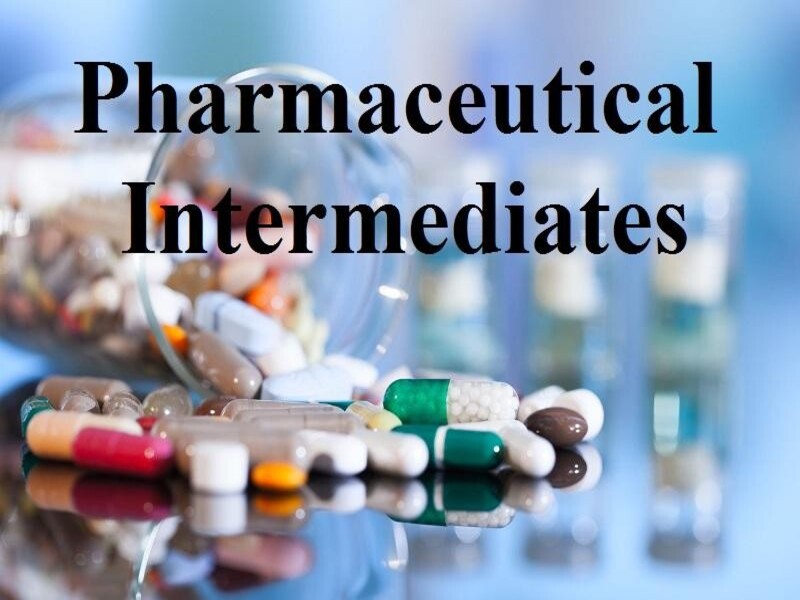In the dynamic and highly regulated pharmaceutical industry, Local Technical Representatives (LTRs) play a pivotal role in simplifying market entry in Africa. They bridge the gap between regulatory authorities and pharmaceutical companies, ensuring compliance, facilitating market access, and maintaining the quality and safety of pharmaceutical products.
Who is a Local Technical Representative (LTR)?
A person or company appointed by the manufacturer or the Marketing Authorization Holder (MAH) to import, receive as a donation, distribute or sell a medicinal product in a specific country. The LTR ensures that the company’s products meet all the regulatory requirements for importation, registration, and distribution in that region. It’s a legal requirement for most countries that the LTR is a certified pharmacist.
Key Responsibilities of Local Technical Representatives (LTRs)
1. Regulatory Compliance
The LTR ensures that pharmaceutical products comply with local regulatory standards, including Good Manufacturing Practices (GMP), labelling requirements, and pharmacovigilance obligations. They keep the company informed of any changes in regulations that could impact its operations.
2. Product Registration and Maintenance
LTRs assist in the registration process for new pharmaceutical products and ensure that existing registrations are maintained and renewed in line with regulatory timelines.
3. Pharmacovigilance
The LTR acts as a critical link in pharmacovigilance, monitoring and reporting adverse drug reactions (ADRs) and other safety concerns to local health authorities.
4. Regulatory Liaison
As the local point of contact, the LTR handles communications with regulatory bodies, addressing inquiries, and facilitating inspections or audits.
5. Training and Capacity Building
LTRs often provide training to local teams on regulatory requirements, ensuring that all stakeholders are equipped to maintain compliance.
6. Regulatory Intelligence (RI)
Staying updated on regulatory trends and policy changes is a vital role of the LTR. They provide strategic insights to help companies adapt to evolving regulatory landscapes, ensuring smooth operations and market access.
The Value of Local Technical Representatives (LTRs) in the Pharmaceutical Industry
The pharmaceutical industry operates in an environment of stringent regulations, varying across regions. Navigating this complexity requires local expertise and a thorough understanding of regulatory frameworks. LTRs contribute by:
1. Ensuring Patient Safety: By adhering to regulatory requirements, LTRs ensure that only safe and effective medicines are available in the market.
2. Ensuring compliance with local regulatory requirements
3. Optimizing skills and saving costs for the MAHs
4. Facilitating Market Access: Their expertise in registration processes and compliance speeds up market entry for new products.
5. Minimizing Risks: By keeping companies informed of regulatory updates, LTRs help mitigate risks associated with non-compliance, such as fines or product recalls.
Challenges Faced by Local Technical Representatives (LTRs)
While their role is indispensable, LTRs face several challenges, including:
1. Rapid Regulatory Changes: Keeping pace with frequent updates and varying interpretations of regulations can be daunting.
2. Resource Constraints: Limited local resources or expertise in some regions can hinder efficient regulatory operations.
3. Cross-Border Coordination: For multinational companies, aligning the objectives of central and local teams can be challenging.
Future of Local Technical Representatives (LTRs) in the Pharmaceutical Sector
The role of LTRs is expected to evolve with advancements in digital health, data analytics, and regulatory science. The integration of digital tools such as AI-driven regulatory intelligence platforms will enhance their efficiency and ability to predict regulatory trends. Moreover, the increasing emphasis on global harmonization of regulations will redefine their roles, requiring a balance between local expertise and global perspectives.
Conclusion
Local Technical Representatives are indispensable in the pharmaceutical industry, ensuring regulatory compliance, supporting market access, and safeguarding public health. As the industry continues to evolve, LTRs must adapt to new challenges and opportunities, leveraging technology and strategic insights to enhance their impact.
Jeyflex Consultants offers expert LTR services to help pharmaceutical companies navigate Africa’s regulatory landscape, streamline market entry, and ensure compliance. Contact us to drive your success!
Article by Marraret Ouma





